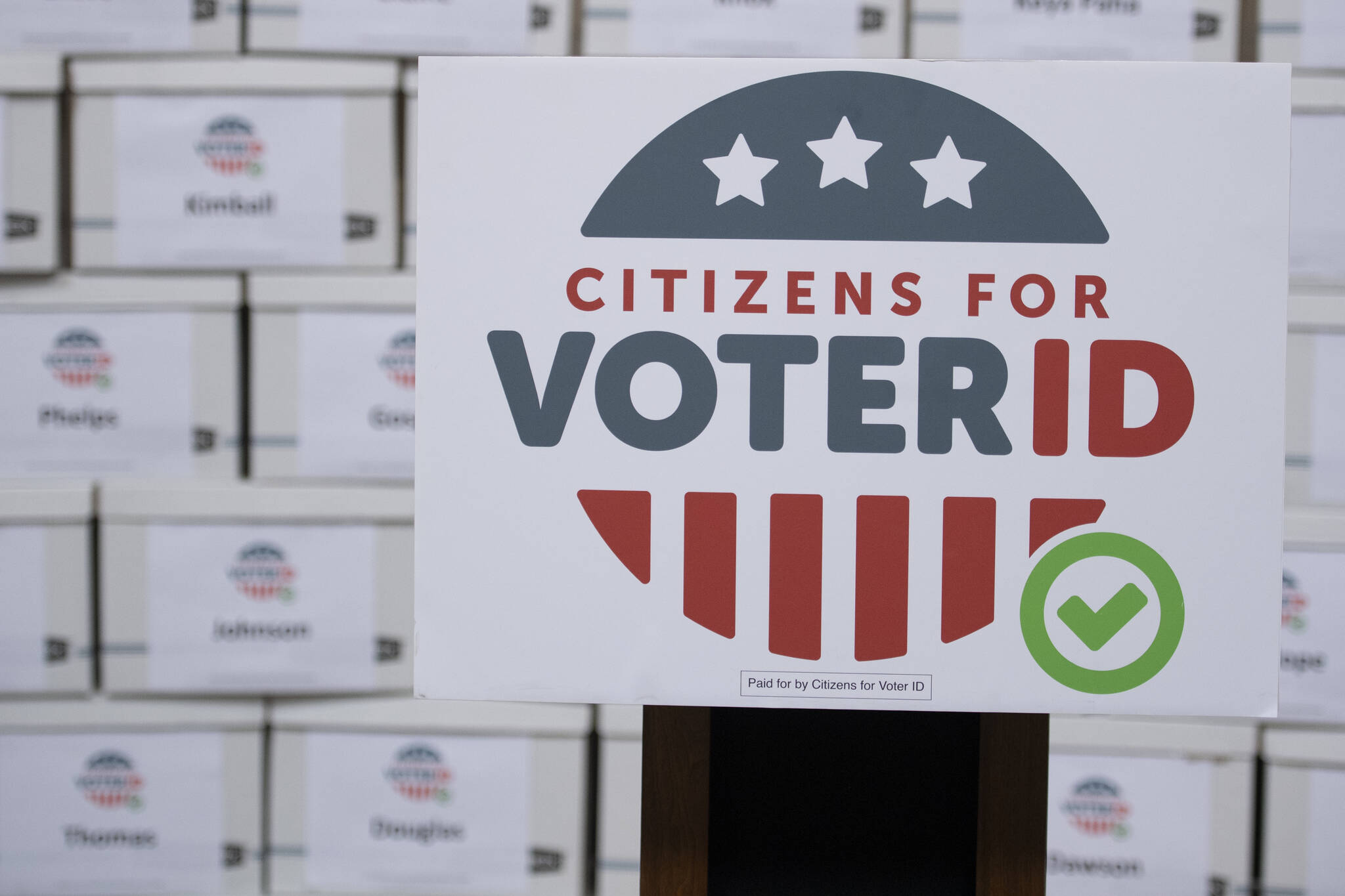Voters in several states are weighing in on fundamental questions about how future elections will function as scores of ballot measures addressing an array of issues are being decided.
Several of the more than 130 state ballot measures in Tuesday’s elections aim to add or limit identification requirements, expand advance voting periods and — in one state — switch to ranked choice voting. Others would affect direct-democracy opportunities by raising the bar to pass future ballot initiatives.
The election-related measures are appearing on ballots alongside other contentious issues. Several states are deciding whether to expand or restrict abortion rights after the U.S. Supreme Court in June struck down a federal right to abortion that had been in place for nearly 50 years. Five states are considering legalizing marijuana for adults 21 and older. At least a dozen states are deciding whether to raise or cut taxes for certain people, property owners or businesses.
Michigan voters are deciding on a wide-ranging initiative backed by voting rights advocates. It would expand early voting options, require state-funded return postage and drop boxes for absentee ballots and specify that the Board of State Canvassers has only a “clerical, nondiscretionary” duty to certify election results. The proposal also could preempt Republican attempts to tighten photo identification laws by amending the state constitution to include the current alternative of signing an affidavit.
After an advance voting proposal failed in 2014, Connecticut voters are again deciding on a proposed constitutional amendment authorizing the Democratic-led General Assembly to create an early voting law. Connecticut is one of just four states currently lacking an in-person early voting option for all voters.
Voters in Nebraska and Arizona are deciding proposals that would tighten voter identification requirements. Nebraska’s measure would require a photo ID to cast a ballot. An Arizona measure would fortify an existing photo ID law for in-person voting by eliminating an alternative of providing two documents bearing a person’s name and address. People voting by mail — the vast majority in Arizona — would have to list their date of birth and either their driver’s license number, a state identification number or the last four digits of their Social Security number.
Other Arizona ballot measures would rein in citizen initiatives by limiting them to a single subject and requiring a 60 percent vote to approve future initiatives containing tax increases.
An Arkansas measure would impose a 60 percent threshold to approve future ballot initiatives.
A proposed amendment to Nevada’s Constitution would adopt an open primary election to advance the top five vote-getters. Ranked choice voting then would be used to determine the winner of the general election. If no candidate received a majority on the first count, the votes for the bottom candidate would be reassigned to voters’ next preferences until one candidate has a majority.
Similar systems already exist for some elections in Maine and in Alaska. But the Nevada measure, if approved this year, would require a second approval in 2024 to take effect.
California, as is often the case, is home to the nation’s most expensive ballot battle. Hundreds of millions of dollars were poured into the campaigns of two competing initiatives to legalize sports betting — one backed by wealthy Native American tribes and the other by online gambling companies and less-affluent tribes.
Health care also is on the ballot in some states. An Oregon measure would create a constitutional right to affordable health care and obligate the state to ensure access. A measure in South Dakota would expand Medicaid coverage to adults under the terms of the federal health care law enacted more than a decade ago under former President Barack Obama.
Voters in five states — Alabama, Louisiana, Oregon, Tennessee and Vermont — are considering constitutional amendments against slavery and involuntary servitude, intending to end the potential of that being used as a criminal punishment.
Voters in some states face divergent paths on the same issues. While Iowa voters are deciding whether to embed the right to bear arms in the state constitution, Oregon voters are considering whether to restrict gun rights by prohibiting magazines capable of holding more than 10 rounds and requiring safety training and a permit to purchase firearms.
Illinois voters are deciding on an amendment creating a constitutional right to collective bargaining in workplaces. By contrast, Tennessee voters are deciding whether to enshrine a current “right-to-work” law in the state constitution, forbidding workplace contracts from requiring union fees.

